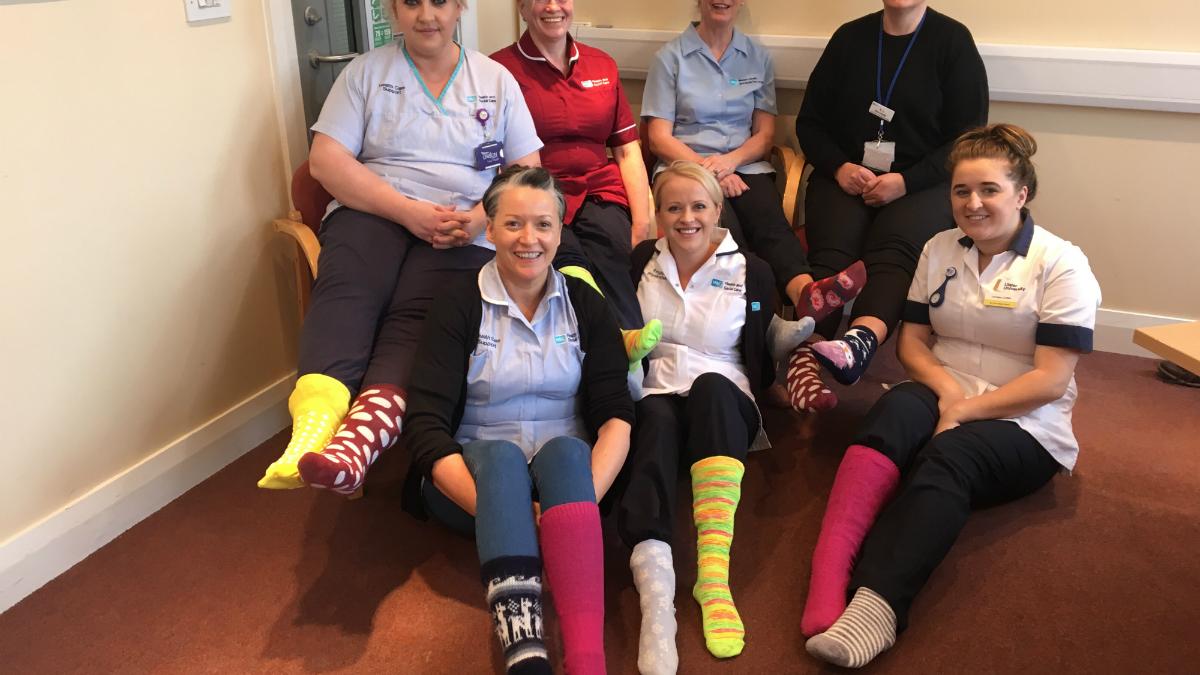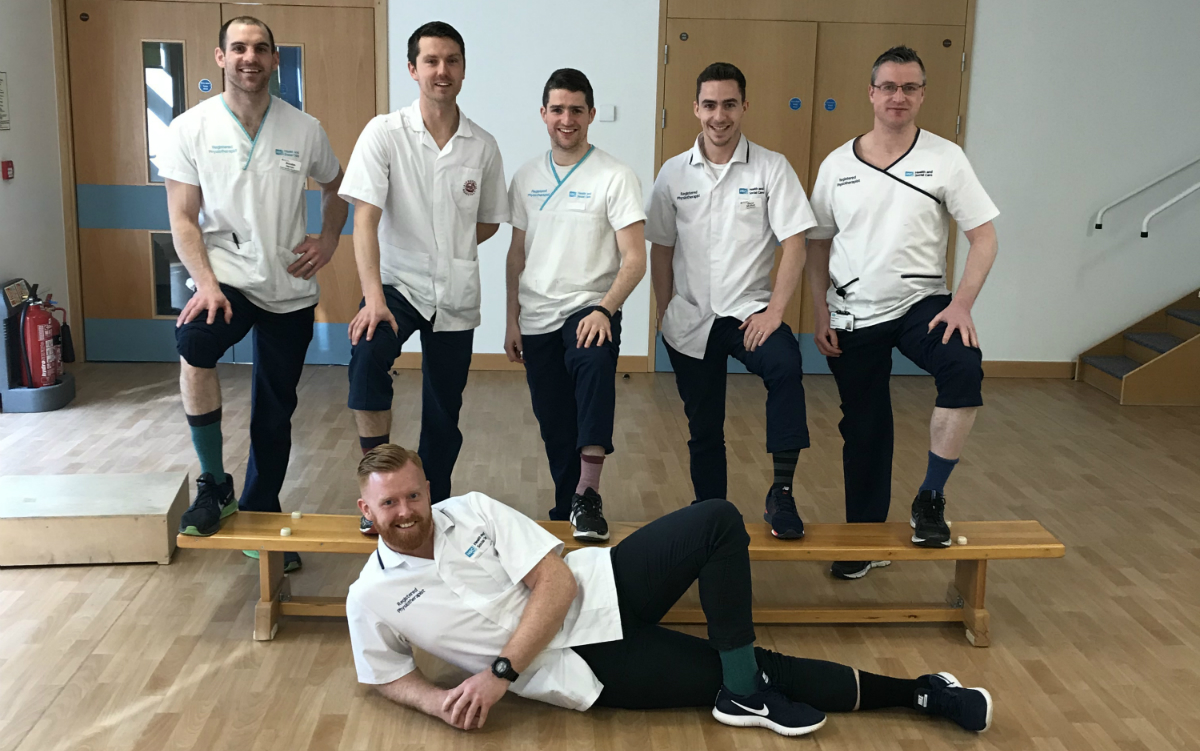Physiotherapists in Northern Ireland held a series of events for this year’s Lymphoedema Awareness Week on 4-10 March.

Physios wearing odd socks at Omagh Hospital and Primary Care Complex, part of the Western Health and Social Care Trust
The lymphoedema team at Western Health and Social Care Trust marked the week by encouraging colleagues to wear odd socks to support the Sock it to Lymphoedema campaign, organised by the Lymphoedema Support Network.
In addition, Jill Hamilton, the team’s clinical lead, spent the week raising the profile of the condition with other healthcare professionals and the public.
She sent information to all GP practices, spearheaded a social media campaign and provided training to carers from the local community service.

Physio outpatient staff wearing odd socks at Altnagelvin Area Hospital, part of the Western Health and Social Care Trust.
In addition, she displayed a PowerPoint presentation in hospital waiting areas to provide patients with information about healthy legs and lymphoedema. And the team organised an awareness-raising event with a local parent and toddler group.
Education sessions
Meanwhile, physio's and nurses from South Eastern Health and Social Care Trust used a stand at Ulster Hospital to promote leg health and lymphoedema awareness.
Pippa McCabe, lymphoedema lead at the trust and a Lymphoedema Network Northern Ireland (LNNI) project team member, said: ‘We had great conversations with staff and visitors, and one lucky staff member won the prize draw to win a pair of compression socks.’
The lymphoedema team from Belfast Health and Social Care Trust, which includes physiotherapists, ran a series of education sessions for healthcare professionals and community staff.
These included a session led by health and fitness coach who provides exercise therapy to patients with lymphoedema.
Jane Rankin, LNNI lead, said: ‘Lymphoedema affects 240,000 men, women and children in the UK and yet it is still very much a Cinderella condition, with many healthcare professionals having little or no knowledge of it.
‘The awareness week is a fabulous opportunity for busy clinical staff to focus on communicating our key messages and promote improved diagnosis and referral pathways to ensure better patient experience.
‘Like many chronic conditions, the earlier lymphoedema is recognised and managed, the better the outcome for both the service user and the service.’
She added that LNNI had produced a leaflet and waiting room poster, which can be downloaded as PDFs (link below), to highlight four key self-management messages for people with lymphoedema.
Author: Robert Millett
Find Out More
Number of subscribers: 1



































